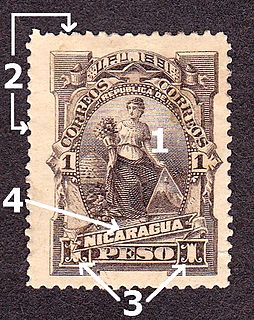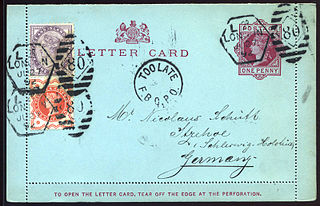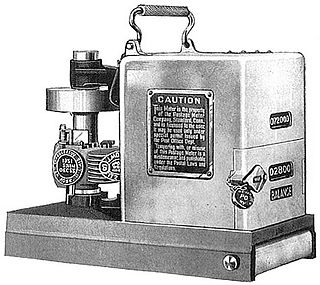Courtesy reply mail, or CRM, is a type of mail in which a business sends pre-printed, self-addressed envelopes or postcards to customers, who then affix postage stamps to the envelopes or postcards and mail them back to the business. [1] Alternatively, the business can disseminate the envelopes or postcards with stamps already affixed, similarly to metered reply mail.

An envelope is a common packaging item, usually made of thin, flat material. It is designed to contain a flat object, such as a letter or card.

A postcard or post card is a rectangular piece of thick paper or thin cardboard intended for writing and mailing without an envelope. Shapes other than rectangular may also be used. There are novelty exceptions, such as wood postcards, made of thin wood, and copper postcards sold in the Copper Country of the U.S. state of Michigan, and coconut "postcards" from tropical islands.

A postage stamp is a small piece of paper issued by a post office, postal administration, or other authorized vendors to customers who pay postage, who then affix the stamp to the face or address-side of any item of mail—an envelope or other postal cover —that they wish to send. The item is then processed by the postal system, where a postmark or cancellation mark—in modern usage indicating date and point of origin of mailing—is applied to the stamp and its left and right sides to prevent its reuse. The item is then delivered to its addressee.
Courtesy reply mail differs from business reply mail in the manner of payment of postage, namely, by stamp when the mail is sent, rather than by the permit holder when the mail is received. Courtesy reply mail is typically used when a response is practically guaranteed, e.g., bill payments.

Freepost is a postal service provided by various postal administrations, whereby a person sends mail without affixing postage, and the recipient pays the postage when collecting the mail. Freepost differs from self-addressed stamped envelopes, courtesy reply mail, and metered reply mail in that the recipient of the freepost pays only for those items that are actually received, rather than for all that are distributed.
In the United States, the United States Postal Service specifies that the envelopes or postcards for courtesy reply mail should be printed with a FIM A code. The POSTNET bar code can be printed on the envelope or postcard; alternatively, it can be printed on a payment coupon so that the bar code is visible through the window of a window envelope when the payment coupon is inserted.

The United States of America (USA), commonly known as the United States or America, is a country composed of 50 states, a federal district, five major self-governing territories, and various possessions. At 3.8 million square miles, the United States is the world's third or fourth largest country by total area and is slightly smaller than the entire continent of Europe's 3.9 million square miles. With a population of over 327 million people, the U.S. is the third most populous country. The capital is Washington, D.C., and the largest city by population is New York City. Forty-eight states and the capital's federal district are contiguous in North America between Canada and Mexico. The State of Alaska is in the northwest corner of North America, bordered by Canada to the east and across the Bering Strait from Russia to the west. The State of Hawaii is an archipelago in the mid-Pacific Ocean. The U.S. territories are scattered about the Pacific Ocean and the Caribbean Sea, stretching across nine official time zones. The extremely diverse geography, climate, and wildlife of the United States make it one of the world's 17 megadiverse countries.

The United States Postal Service is an independent agency of the executive branch of the United States federal government responsible for providing postal service in the United States, including its insular areas and associated states. It is one of the few government agencies explicitly authorized by the United States Constitution.

The Facing Identification Mark, or FIM, is a bar code designed by the United States Postal Service to assist in the automated processing of mail. The FIM is a set of vertical bars printed on the envelope or postcard near the upper edge, just to the left of the postage area. The FIM is intended for use primarily on preprinted envelopes and postcards and is applied by the company printing the envelopes or postcards, not by the USPS.







